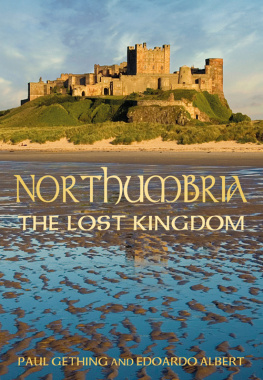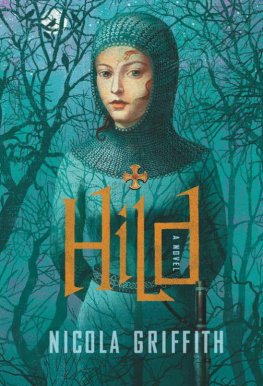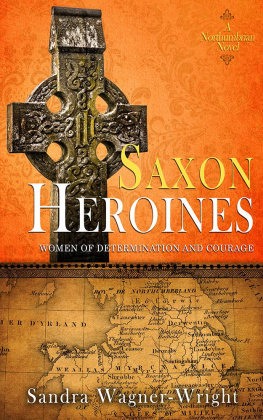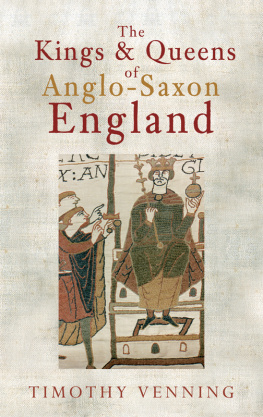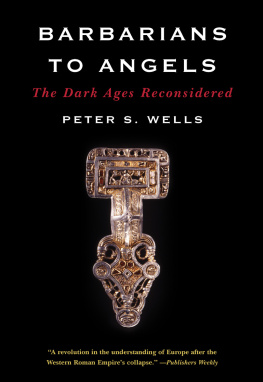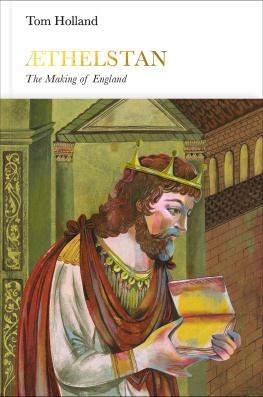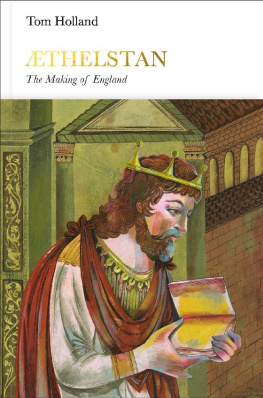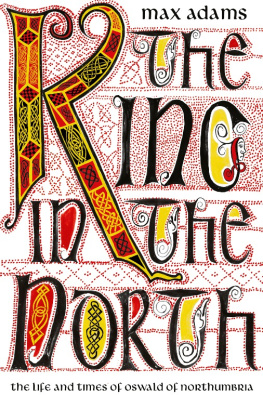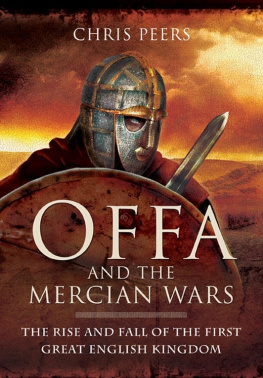
We have many people to thank, living and dead, starting with the estate of J.R.R. Tolkien for permission to quote from the Good Professors works in this book. Without his work, we would never have embarked on our respective careers. Everyone at the Bamburgh Research Project has been unfailingly helpful to us; we would like to thank, in particular, Graeme Young, Sarah Groves and Gerry Twomey. Ian Boomer, Clive Waddington and Alex Woolf gave us their time and thoughts in interviews (as did Graeme and Sarah). Jude Leitch of Northumberland Tourism and Sheelagh Caygill of This Is Northumberland have helped us over the years, and with pictures and promotion for this project. David and Margaret Whitbread have supported the Bamburgh Research Project and us, their sons-in-law, through a decade and more. Tom Vivian and Lindsey Smith were all we could have hoped for from our editors at The History Press. We are very grateful and not a little chuffed that Tom Holland read the book.
Moving to the personal, I (Edoardo Albert) want to thank my parents, Victor and Paola, for everything and my brother, Steven, for getting me through some bad times. Proving that I should never be let anywhere near an Oscars acceptance speech, my thanks are also due to my sons, Theodore and Matthew (and for the loan of Theos laptop to finish the book when my computer was stolen). Last, but never least, Harriet, indexer extraordinaire and extraordinary wife.
I (Paul Gething) would like to thank my grandfather, Ernest Frank Huggett, who taught me to question. I miss you, Old Timer! Thanks also to Jacob Gething, my constant companion throughout my journeys in Northumbria. It has been a blast, Jake! Finally, thanks to Rosie Whitbread, for everything else. I dont deserve you
CONTENTS
Remember when you were young, you shone like the sun.
(Shine on you Crazy Diamond, Pink Floyd)
If Northumbria is a lost kingdom, where would you find it? Its not on the map. Sure, theres Northumberland, but while that is certainly composed of land north of the Humber, its separated from the river by the whole of Yorkshire. Its a curious name for a county; transplanting the nomenclature to countries, its like calling Canada North Mexico. But the distance of the modern county from its name source gives us a clue: once upon a time, Northumbria was bigger. Much bigger. For a couple of hundred years, between the withdrawal of the Roman legions and the arrival of the Vikings, the kingdom of Northumbria was the pre-eminent realm in the land, its dominion stretching from the Humber in the south to Edinburgh in the north. Before Northumbrias kings, the rulers of the other kingdoms of Britain bent their knee and offered their homage. To put it bluntly: Geordies ruled us all.
Not only did they rule us, they renewed us. The kingdom of Northumbria was the fount and inspiration for a cultural and political renaissance that first transformed Britain and then the rest of northern Europe. It produced the brightest scholars, the holiest saints, the greatest kings, the fiercest warriors, the most beautiful art and the most innovative technology of its time.
But then it was forgotten. Most people today will have heard of Bede, but apart from labelling him venerable which relegates the monk to a dim past rather than suggesting him worthy of regard that will be about the limit of their knowledge. Oswald, Wilfrid, Alcuin, Edwin? Names that have fallen out of fashion, rather than four of the key figures in British and (in Alcuins case) European history. There are many reasons for the forgetting, but they can be summed up as fate and fortune, or geography and war. Northumbrias position at the edge of the world, which once served it well, isolated it in the end. But unfortunately its isolation was not sufficient to protect it from the whirlwind that came out of the north: the Vikings. In the desperate struggle against the northmen, the kingdom of Wessex, insulated by geography from raiders who regarded the North Sea as their private pond, took first place, and history accorded its king, Alfred, the deserved title of the Great. But two centuries before Alfred, Northumbrias King Oswald was Britains first royal saint and martyr.

Bamburgh Castle.
In this book, we hope to bring the lost to light, and reveal the splendour of the lost kingdom of Northumbria. To do so, we will use the knowledge gained by archaeologists and historians over the last few decades, knowledge that has produced such a lightening of what were once called the Dark Ages that theyre now called admittedly with rather less pzazz but considerably more accuracy the early medieval period.
Of the authors, Paul Gething is an experimental archaeologist, smelter and bladesmith, and one of the directors of the Bamburgh Research Project, an ongoing series of excavations that has been instrumental in our reassessment of the kingdom of Northumbria. He provides the archaeological and historical weft for the other author, writer Edoardo Albert, to weave into a tapestry of the life, times, culture and people of the lost kingdom of Northumbria.
We hope you enjoy the journey.
Notes
Paul Gething (born Mexborough) insists that we add and Yorkshiremen to the phrase.
Quam cito transit gloria mundi. (How quickly the glory of the world passes.)
(Thomas Kempis, The Imitation of Christ )
The Dark Ages are full of obscure kingdoms that briefly rose to power, only to sink slowly or catastrophically back into oblivion. What makes Northumbria worth writing about rather than Rheged, Lyndsey or Elmet, or any number of petty kingdoms that have been swallowed up over time?
And yet Northumbria is different. Its kings were no less violent; its battles were as often ignoble and rapacious as glorious and decisive; and its peasants have left as little a trace as peasants have elsewhere. The kingdoms of Britain in the early medieval period were no different from their inhabitants lives: nasty, brutish and short.
While we grant that Northumbria was a relatively short-lived kingdom, and its wars were certainly nasty, one look at a page of the Lindisfarne Gospels will reveal that it was far from brutish.
On the contrary, perhaps because of the sheer fragility of civilised life, beauty became all the more precious. A monk might spend six weeks working on a single letter, only to have it lost to fire, while a smith might hammer a sword blade 10,000 times and then see it shatter as a result of the quenching process. Beauty was something hard won, and harder still to preserve. But in the brief period of its heyday, in conditions that are as perfect an example of a Hobbesian world as one would not wish to find, Northumbrias inhabitants made a civilisation that stood shoulder to shoulder and eye to eye with Byzantium (the eastern, enduring arm of the Roman Empire) and the new power of the Carolingian Empire under Charlemagne.
It might be hard to imagine that kings who could not read and whose preferred method of dealing with an inconvenient relative was assassination, might be bulwarks of civilisation, yet they were. For a brief time, little more than a couple of centuries, an extraordinary kingdom flourished, creating islands of culture in the land by the sea.
Next page
